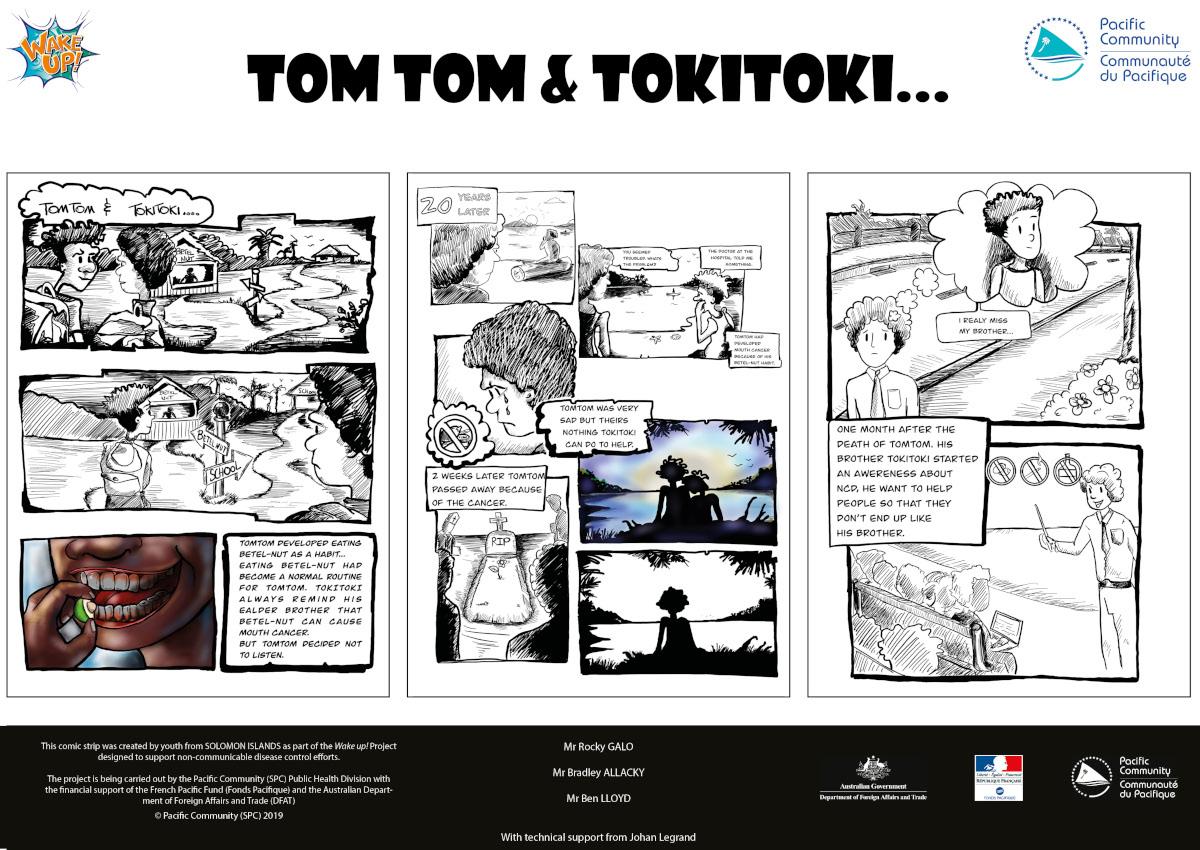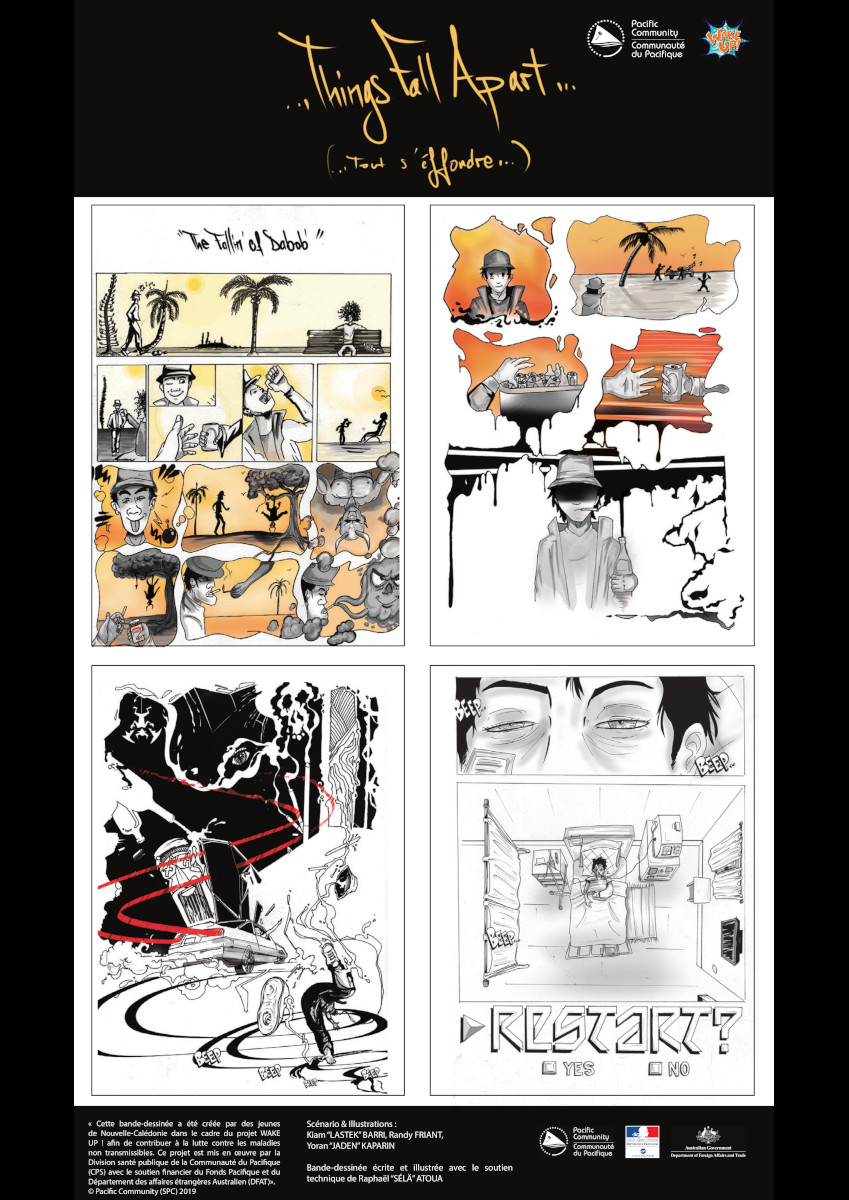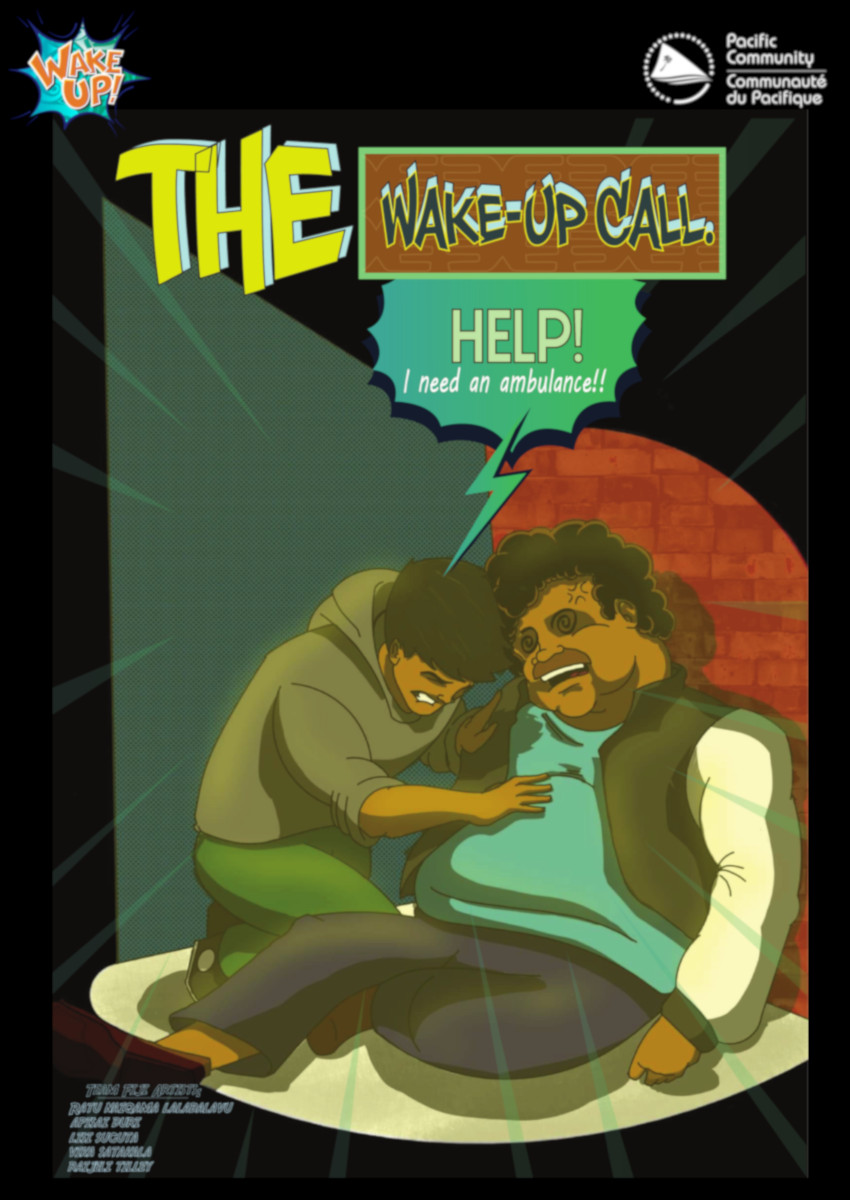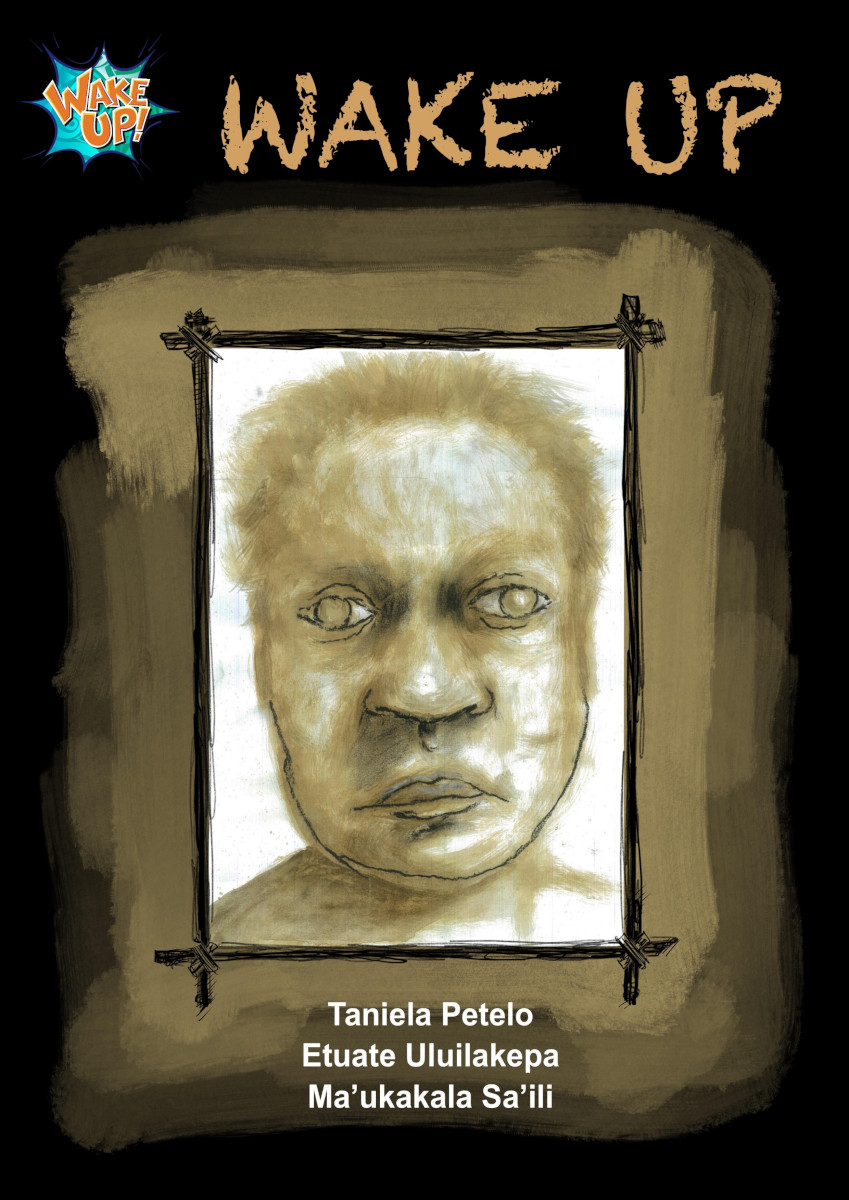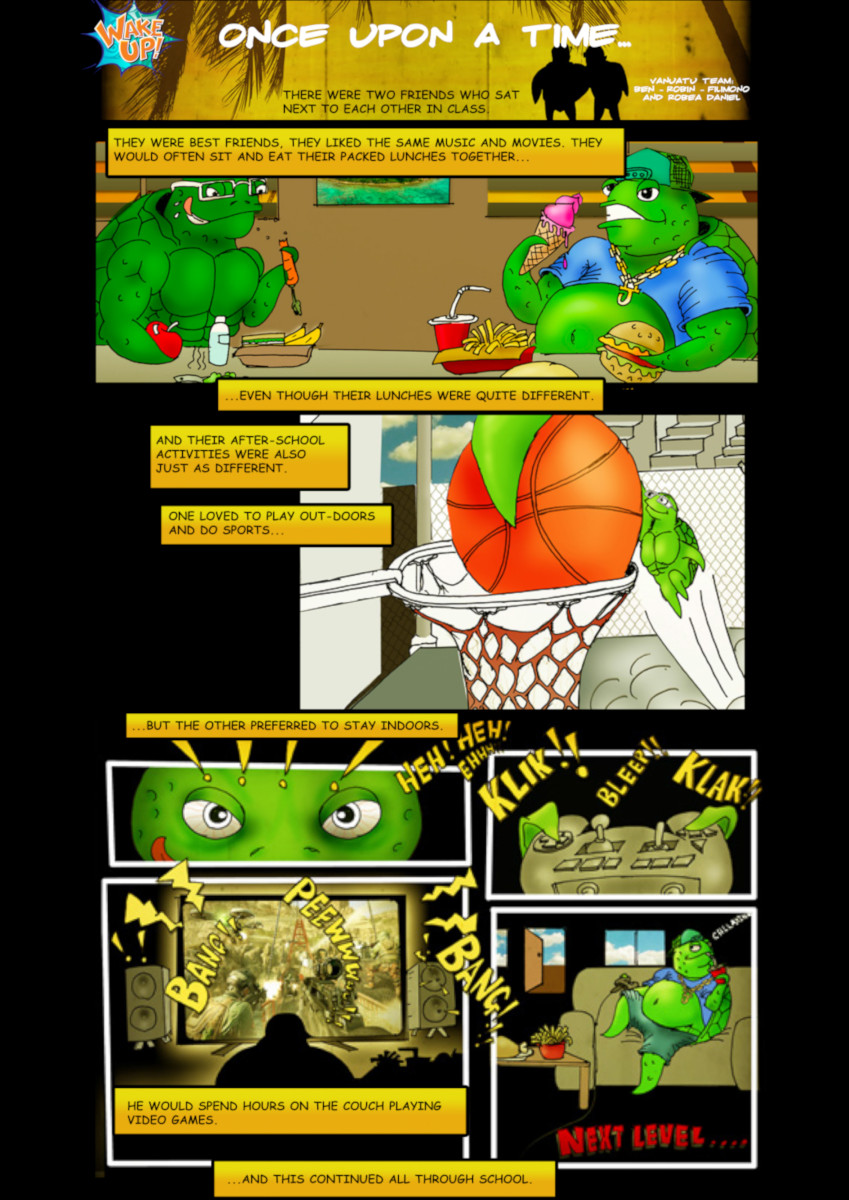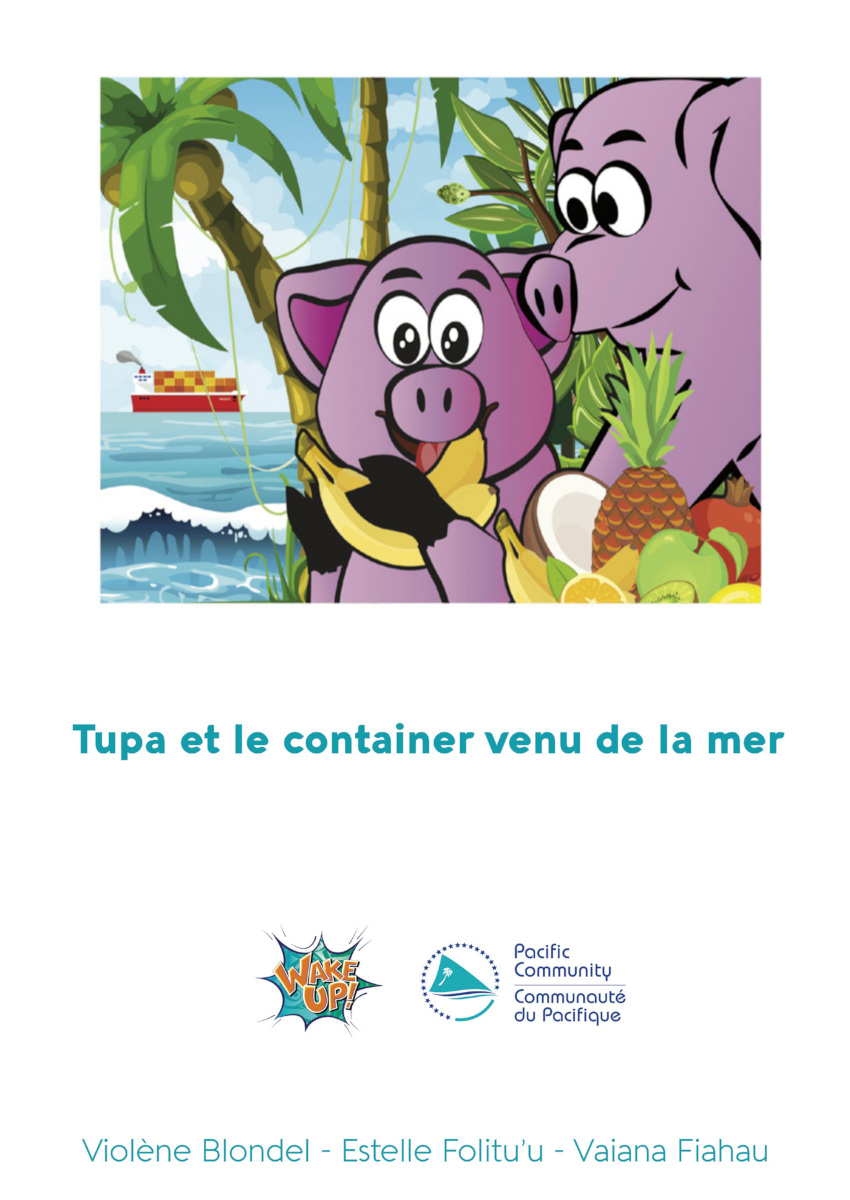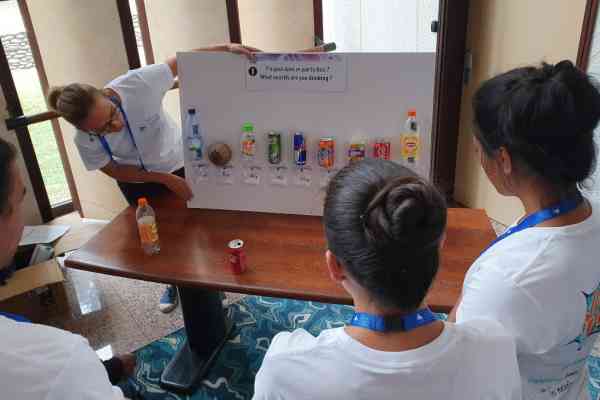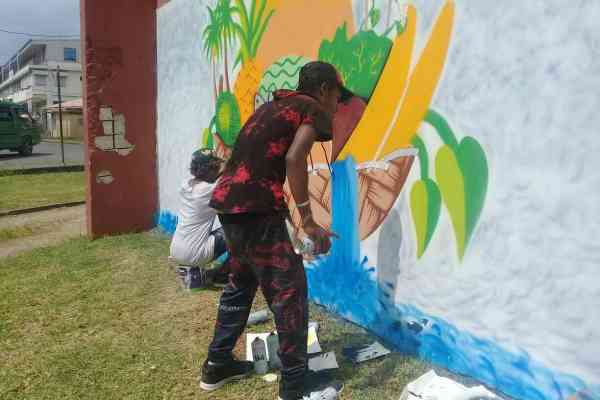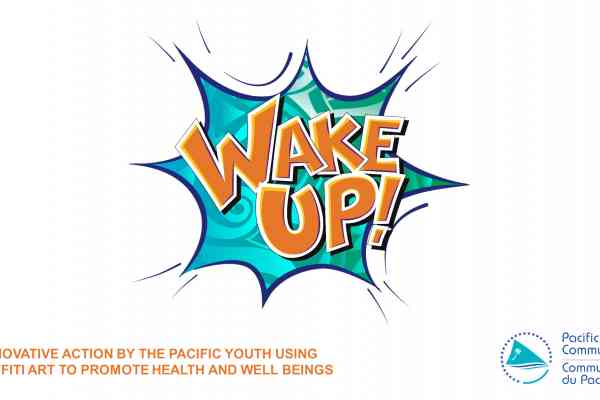For the third consecutive year, young people from different Pacific island states and territories have the opportunity to spread prevention and control messages for noncommunicable diseases (NCDs) using different media, thanks to the Wake Up! Project, launched in 2017, with financial support from the Pacific Fund (France) and the Australian Ministry of Foreign Affairs and Trade (DFAT), and implemented by the Pacific Community (SPC).
In August 2019, around thirty young people from the Cook Islands, Fiji, New Caledonia, the Solomon Islands, Tonga, Vanuatu and Wallis and Futuna chose to design the comics that we are presenting to you today. They are intended to make communities of origin of these young people aware of the issue of NCDs.
NCDs (diabetes, cardiovascular diseases, chronic respiratory diseases and cancer) constitute a major obstacle to the socio-economic development of the Pacific Island Countries and Territories. Smoking, harmful alcohol use and unhealthy eating, along with physical inactivity, are the main risk factors associated with NCDs.
Each team thus focused on one of these risk factors, and created a story aimed at presenting the dangers of NCDs, but also the solutions that exist in order to deal with them.
Cook Islands
Cook Islands
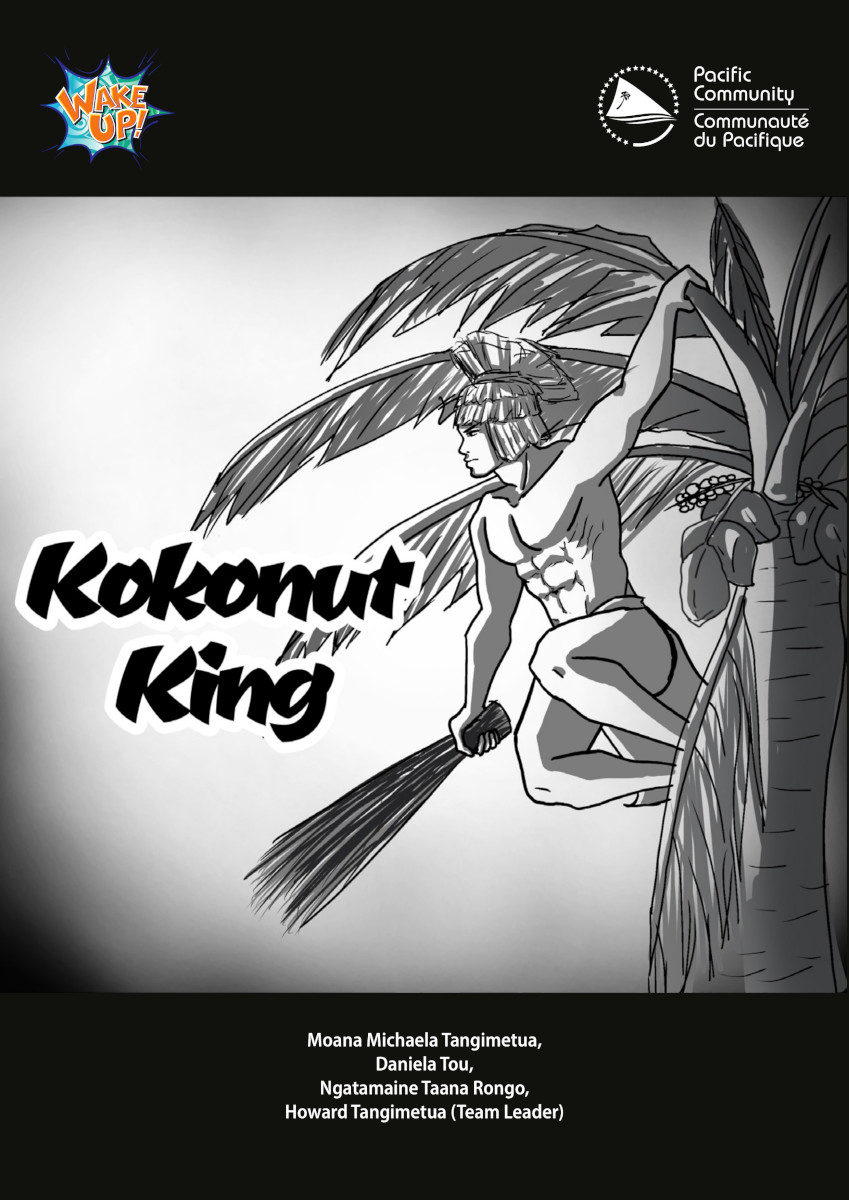
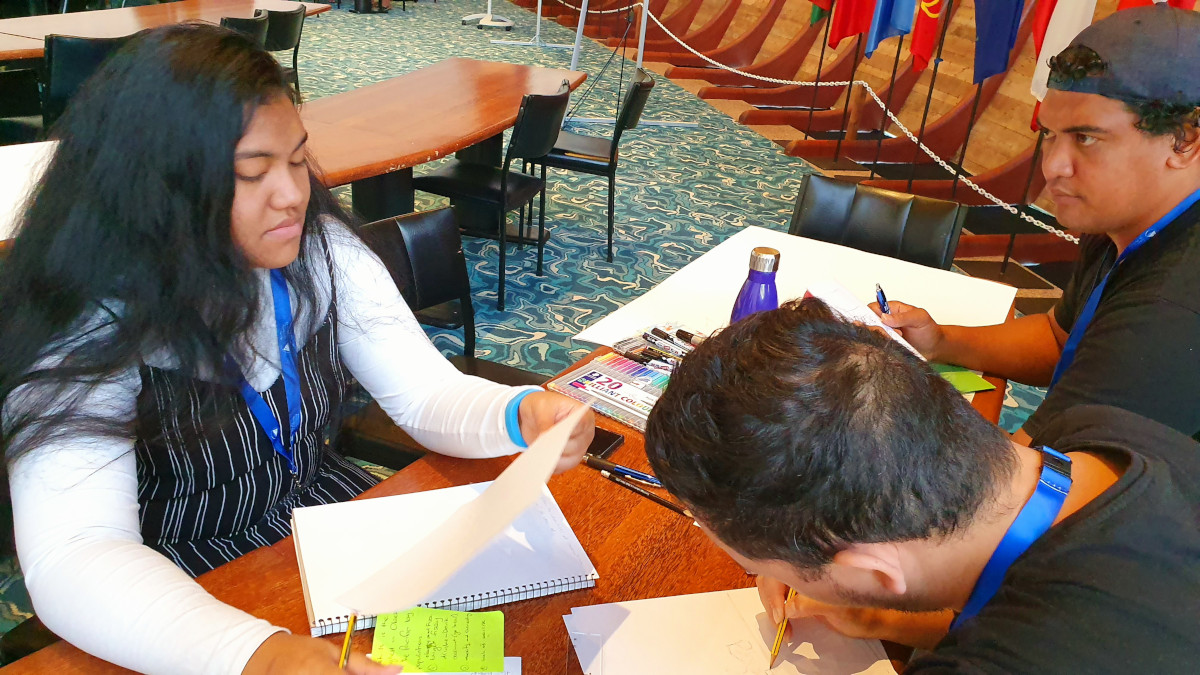
Ngatamaine and his team chose to participate in the project because NCDs are a major problem in the Cook Islands. The team therefore wanted to explore a new way to fight against these diseases.
The team has created a comic strip based on the legend of a superhero, who combats non-communicable diseases (NCDs): the Coconut King.
"We are trying to promote the actions of this superhero who teaches people what not to do and how to live healthy and eat properly," says Ngatamaine.
"We invite you to read this legend, told by a village teenager about this strange man, faster than the fastest of dogs and climbing trees faster than any cat, and who encouraged the community to choose a healthy lifestyle."
New Caledonia
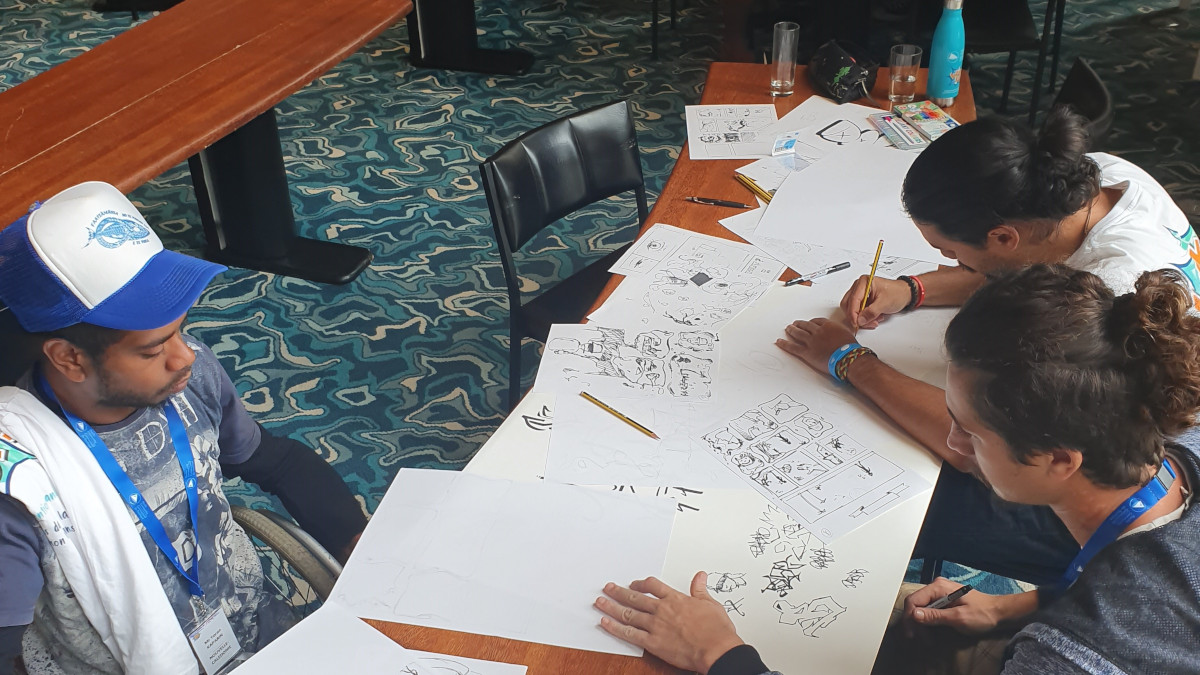
This team of three young Caledonians is mobilizing against smoking and the harmful use of alcohol, one of the major challenges for young people in the country.
"I chose to participate in this NCD project because I wanted to know more about the risks associated with these diseases, and more particularly the risks associated with certain specific products that I consume daily," explains Yoran, member of the team.
“We have chosen to point out how everything can collapse due to these two risk factors for NCD through the story of a young boy who drinks and smokes too much and ends up realizing that it can kill him. This story is unfortunately not uncommon here in our country."
Solomon Islands
SI
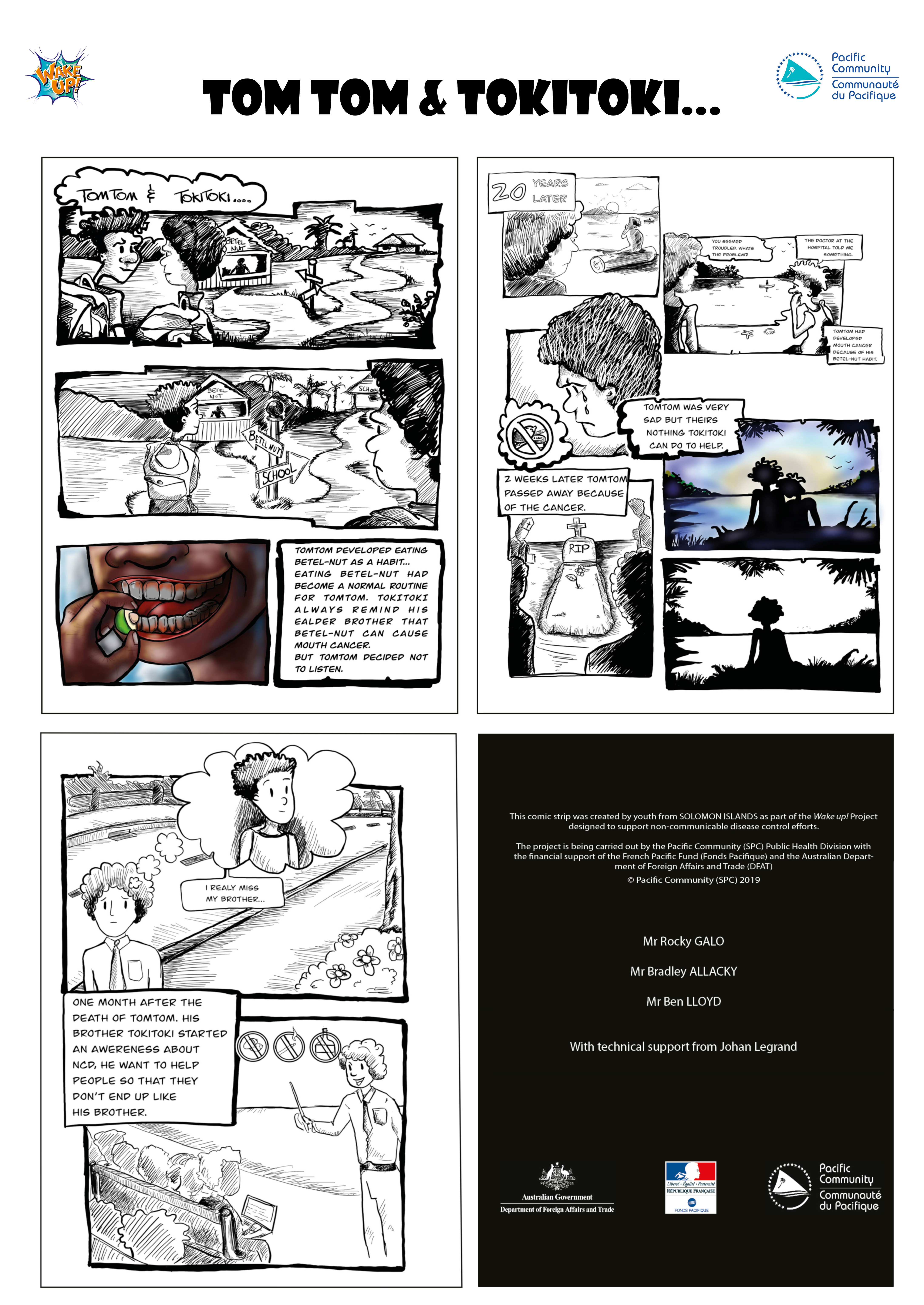
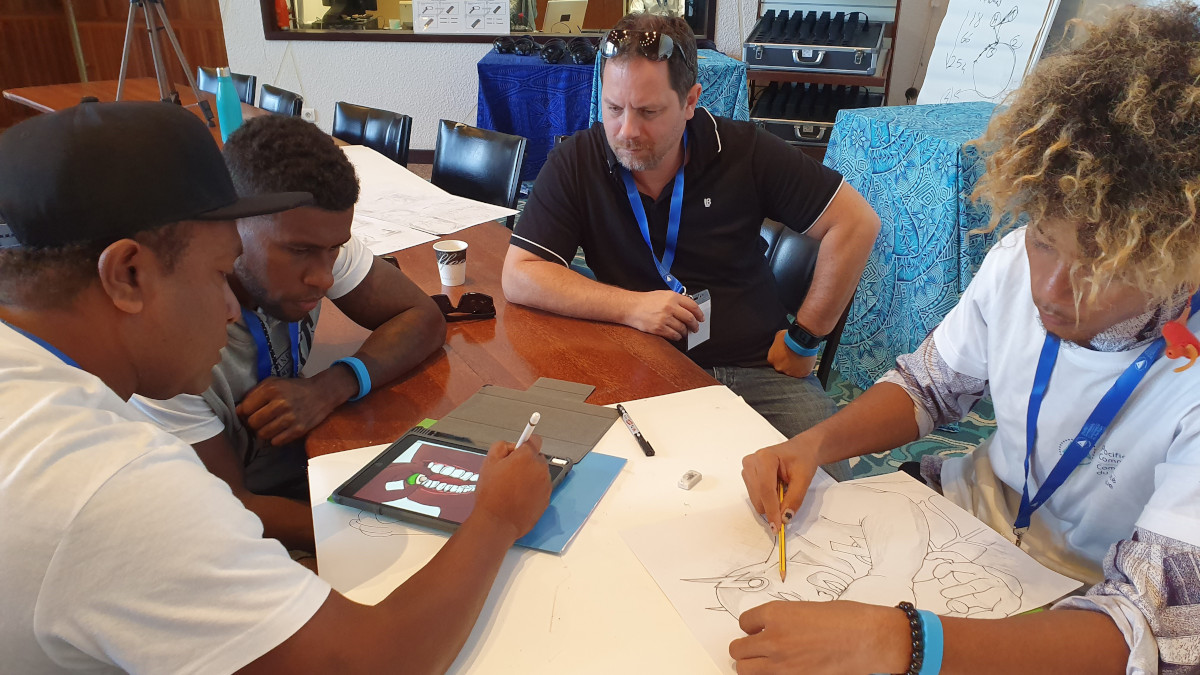
According to Bradley, a member of the Solomon Islands team, there are many NCD problems in his country. It is therefore very important to know what they are and how to prevent them.
"Where I come from, chewing betel nut is a common habit, but not many people know that it is a risk factor for cancer. That's why we have to find solutions to this problem, he says.
"To raise awareness in our communities, we wrote the story of two brothers, Tom Tom and Tokitoki. Although his brother keeps reminding him of how bad it is, Tom Tom continues to chew betel nut every day. After 20 years of consumption, Tom Tom will eventually dies from cancer. Devastated to have lost his brother to whom he was close, Tokitoki decides to advocate for a healthy lifestyle within his community."
Fiji
The Fiji team tells the story of a 25-year-old man who, after a serious heart attack caused by his lifestyle, has to change his daily habits by exercising more and adopting a balanced diet. He then becomes an advocate in the fight against NCDs so that the young generation can learn from their experience.
Wallis and Futuna
The Wallis and Futuna team wrote the story of Tupa, a little pig faced with the consequences of his poor diet. This cartoon aims to raise awareness among the youngest members of the Wallis and Futuna community about the risks linked to excessive consumption of heavily processed foods.
Would you be interested in taking part in the 2020 SPC Wake Up! Project?
Stay tunned, the 2020 call for application will be launched in April!
This year, the participants will focus on raising NCDs awareness through an animated video.
